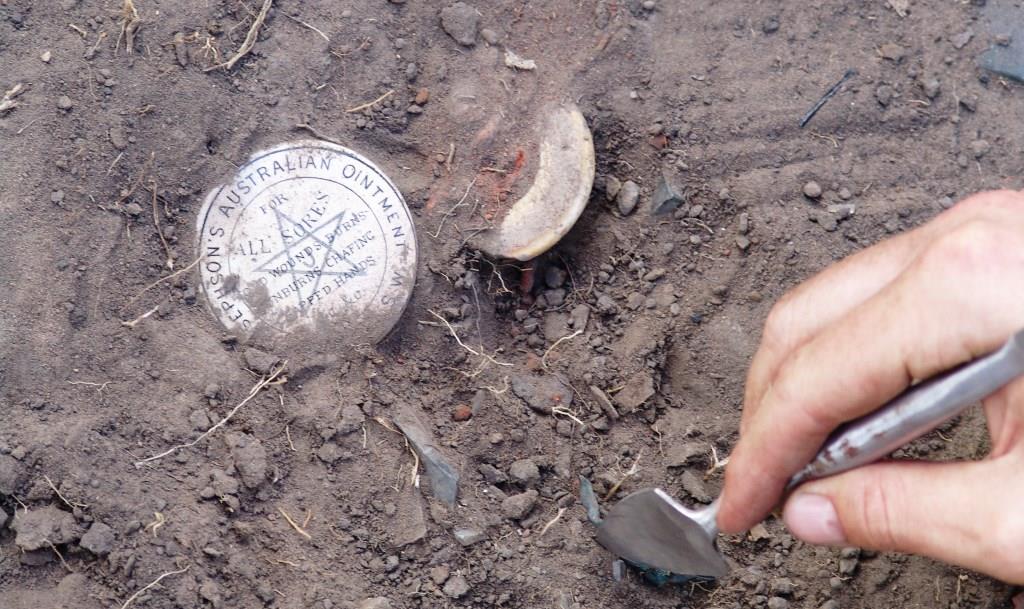
Archaeologists often know where to start digging, but Associate Professor Heather Burke’s research project is in a league of its own.
Armed with a three-year $765,727 Australian Research Council Discovery grant – one of the largest awarded to Flinders University in recent years – she is two years into retracing the lives of remote Australia’s Native Mounted Police by locating some of the dozens of regular camp sites dotted in some of the most remote locations in Queensland during colonial times.
“From historical records we know of nearly 200 Native Police camp sites across Queensland and so far have found 17 of them,” Associate Professor Burke says.
“Even if we have historic maps for their location, we sometimes cannot find them.
“There’s still a long way to go and some we’ll ever find because many have been destroyed and no longer exist.”
Most of the Native Police camp sites were located well away from towns in the middle of nowhere, especially in southwestern Queensland,” Associate Professor Burke says.
Lead investigator Associate Professor Burke and her archaeology collaborators, including senior researcher at Nulungu Research Institute in Broome Dr Lynley Wallis, are keen to recall the contribution of the Indigenous and European early police force of Queensland (before it was a state) who built a reputation for strongly defending pastoralist pioneers.
“The first systematic archaeological study of the Queensland Native Mounted Police is focusing on the material evidence for the activities, living and working conditions of Aboriginal troopers, the relationships between them and European officers, and the oral histories of conflict held by Aboriginal and non-Aboriginal people,” Associate Professor Burke says.
“By combining material, oral and historical evidence from a range of sites across central and northern Queensland, we will be able to understand more fully the labour, lives and legacies of the Native Police.
“It will provide an alternative lens through which to understand the nature of frontier conflict, initiate new understandings of the Aboriginal and settler experience and contribute to global studies of Indigenous responses to colonialism.”
As part of researching this part of Australian history, the project is giving archaeology students at Flinders a veritable field day.
In July, 10 students from Flinders will join members of the Pitta Pitta Native Title group for a field school at the Boulia Native Police camp, followed by excavating at other sites in Cape York in August.
The other collaborators include Bryce Barker (University of Southern Queensland), Iain Davidson (University of New England), Noelene Cole and Elizabeth Hatte (Northern Archaeology Consultancies Pty Ltd) and Dr Larry Zimmerman (Indiana University-Purdue University, US). The ‘Archaeology of the Queensland Native Mounted Police: Aboriginal-European Interactions on the Queensland Frontier, 1849-1904’ project (ARC Discovery 160100307) will run from 2016-2019.
The Department of Archaeology at Flinders University is one of Australia’s leading centres for the study of archaeology. The courses are taught by internationally renowned staff with a wide range of specialist skills in many fields. Departmental staff are active researchers working on innovative projects across Australia, Asia, Europe, South America, South Africa and the Near East. Students can participate in these projects through a diverse selection of fieldwork programs. For more information http://www.flinders.edu.au/ehl/archaeology/archaeology_home.cfm

